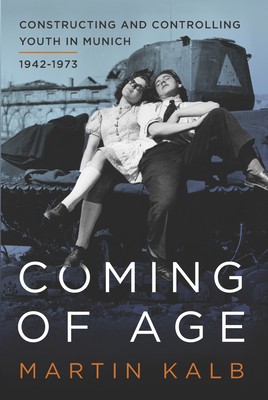
- We will send in 10–14 business days.
- Author: Martin Kalb
- Publisher: Berghahn Books
- ISBN-10: 178920819X
- ISBN-13: 9781789208191
- Format: 15.2 x 22.9 x 1.5 cm, softcover
- Language: English
- SAVE -10% with code: EXTRA
Reviews
Description
In the lean and anxious years following World War II, Munich society became obsessed with the moral condition of its youth. Initially born of the economic and social disruption of the war years, a preoccupation with juvenile delinquency progressed into a full-blown panic over the hypothetical threat that young men and women posed to postwar stability. As Martin Kalb shows in this fascinating study, constructs like the rowdy young boy and the sexually deviant girl served as proxies for the diffuse fears of adult society, while allowing authorities ranging from local institutions to the U.S. military government to strengthen forms of social control.
EXTRA 10 % discount with code: EXTRA
The promotion ends in 16d.06:46:52
The discount code is valid when purchasing from 10 €. Discounts do not stack.
- Author: Martin Kalb
- Publisher: Berghahn Books
- ISBN-10: 178920819X
- ISBN-13: 9781789208191
- Format: 15.2 x 22.9 x 1.5 cm, softcover
- Language: English English
In the lean and anxious years following World War II, Munich society became obsessed with the moral condition of its youth. Initially born of the economic and social disruption of the war years, a preoccupation with juvenile delinquency progressed into a full-blown panic over the hypothetical threat that young men and women posed to postwar stability. As Martin Kalb shows in this fascinating study, constructs like the rowdy young boy and the sexually deviant girl served as proxies for the diffuse fears of adult society, while allowing authorities ranging from local institutions to the U.S. military government to strengthen forms of social control.


Reviews